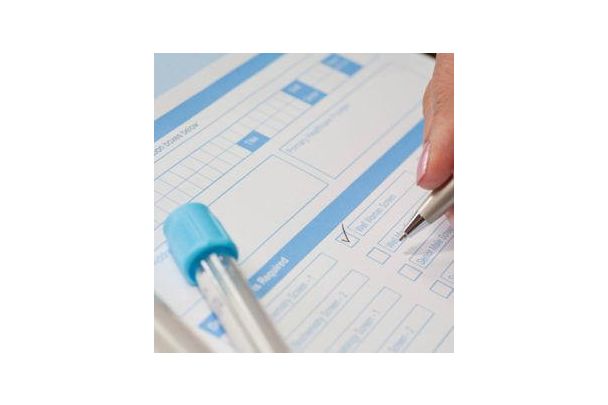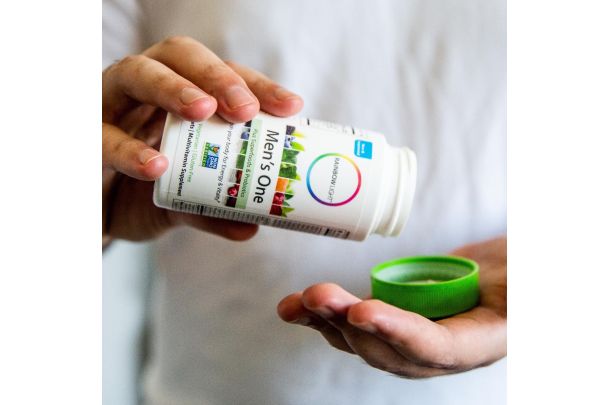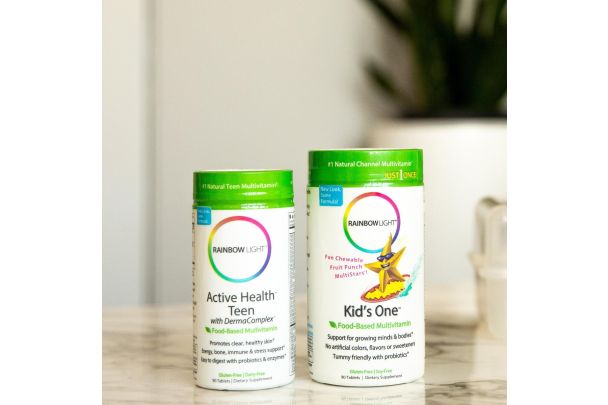In this article
It’s easy to think that if you eat a healthy diet, you’re getting all the nutrients you need. But nutritional deficiencies are surprisingly common. For example, one recent scientific review paper noted that 30 to 50 percent of the U.S. population is deficient in vitamin D.[1]
Importantly, just because your blood work does not show that you have a nutrient deficiency does not mean you are getting enough of all the vitamins and minerals you need. Many folks who are not officially deficient in any given nutrient are still insufficient, meaning they may be getting enough to survive, but not to thrive.
On the other hand, more isn’t always better. It’s possible — although rare — to get too much of a nutrient, especially the fat-soluble vitamins. So how can you find out the optimal levels of various nutrients — and how you stack up?
The good news is that there are blood tests you can have done that are reliable, accessible, and affordable. But first, it helps to know a little about the different kinds and amounts of nutrients everybody needs.
Fat-Soluble Vitamins: These vitamins are stored in body fat and build up over time. You may develop deficiencies in fat-soluble vitamins if your fat intake is low or if something is interfering with your ability to absorb fat, such as certain medications or health conditions. However, since fat-soluble vitamins do accumulate, it’s also possible to overdo it. When consumed to excess, these vitamins can be potentially toxic.
The two fat-soluble vitamins that are most likely to be out of balance are vitamin A, which is necessary for healthy vision and skin, and vitamin D, which helps the body absorb calcium and thereby promotes bone health. Both vitamins also play a key role in strengthening immune defenses.
 Your blood levels of these vitamins should be:
Your blood levels of these vitamins should be:
- Vitamin A: 30-95 mcg/dL
- Vitamin D: Scientists differ on ideal levels of vitamin D. The Institute of Medicine defines deficiency as anything under 20 ng/mL, but other researchers think 30 0r even 40-60 ng/mL may be the optimal level. Exceed 150 ng/mL, though, and you could start seeing harm to your health. (Note: You would have to take a lot of supplemental vitamin D to achieve this level: about 40,000 IU per day for a couple of months or more.)[2]
Water-Soluble Vitamins: These vitamins are flushed out of the body through the urine and need to be replenished daily. They include the B vitamins, which regulate cellular reactions, create energy in the body, and support nervous system health. The three Bs you’re most likely to be deficient in are B6, B12, and folate.
Your blood levels of these vitamins should be:
- Vitamin B6: 5-24 mcg/mL
- Vitamin B12: 200-800 pg/mL
- Folate: 5.4-40 mg/mL
Macro Minerals: Your body needs these minerals in larger amounts. Three macro minerals — calcium, magnesium, and potassium — are frequently deficient in the American diet. Calcium builds strong bones and teeth, magnesium regulates over 300 chemical reactions in the body including energy production and cell signaling, and potassium regulates fluid balance in cells, helping maintain healthy blood pressure.
Your blood levels of these minerals should be:
- Calcium: 5-10.3 mg/dL
- Magnesium: 5-2.4 mEq/L
- Potassium:5-5 mnol/L
Micro (Trace) Minerals: These minerals are needed in smaller amounts, but they still play a key role in maintaining optimal health. You are most likely to be deficient in two micro minerals: iron, which builds healthy blood and supports normal energy, and zinc, which promotes a strong immune system. Just as important, though, too much iron may contribute to heart disease, while too much zinc can actually impair immune function.
Your blood levels of these vitamins should be:
- Iron: 25-170 mcg/dL
- Zinc: 60-130 mcg/dL
Omega-3s: These fatty acids are crucial for normal metabolism and play a role in everything from cardiovascular to mental health. However, most people eating a standard American diet don’t get enough omega-3s.
Your blood level of omega-3s should be:
- 8 percent or more of your total fatty acids
Getting Tested
Now that you know what you’re looking for, how do you get tested? You can ask your doctor to draw blood and send it out for testing, but depending on the type of insurance you have, it may be less expensive to use a direct access testing laboratory (so named because they do not require your doctor’s involvement).
These labs can test for deficiencies in vitamins, minerals, antioxidants, amino acids, and omega-3s. You can choose a complete panel, or, if you suspect a particular deficiency, you can test for just one nutrient.
Some labs that provide nutritional deficiency testing include:
If you just want to get your vitamin D levels tested, consider the in-home test kit offered by the Vitamin D Council:
The following labs offer the Omega-3 index test, which measures the level of DHA and EPA in your red blood cells:
You have two choices when using a direct access lab. You can visit a clinician (either one affiliated with the lab or your own physician) to get your blood drawn and have it sent away for testing. Or, you can order a testing kit through the mail and then go to a local hospital or clinic to get the blood work done. The lab can help you locate the blood draw site closest to you. In addition, depending on where you live, some tests can be conducted using a finger-stick test you can administer at home and return through the mail.
In several weeks, the lab will send you a report noting whether your levels of various nutrients are adequate, borderline, or deficient, providing you with either peace of mind or the information you need to take action to safeguard your health. You can discuss the results with your physician or, in some cases, call the lab for a consultation.
If you do have any nutritional deficiencies, the lab may make recommendations for a supplementation plan. After you have followed the plan for the recommended time, which will vary by nutrient, you can take the test again. That way you’ll know you’re neither getting too much or too little of any nutrient, but just the right amount.
References
[1] Lee JH, et al. Vitamin D deficiency: An important, common, and easily treatable cardiovascular risk factor? J Amer Coll Cardiol. 2008 Dec; 52(24):1949-1956.
[2] Am I getting too much vitamin D? Vitamin D Council. https://www.vitamindcouncil.org/about-vitamin-d/am-i-getting-too-much-vitamin-d/












Share: